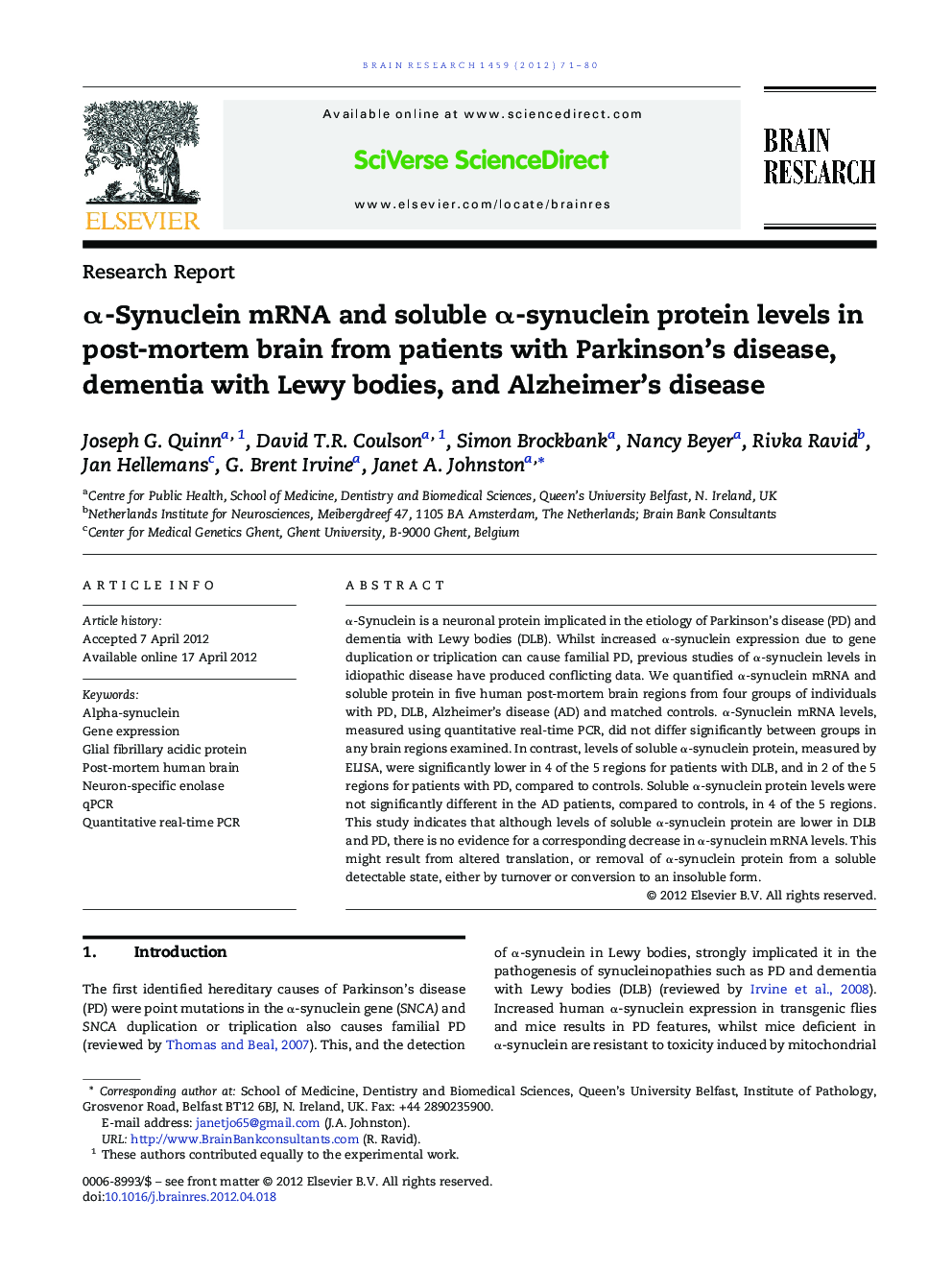| Article ID | Journal | Published Year | Pages | File Type |
|---|---|---|---|---|
| 6264347 | Brain Research | 2012 | 10 Pages |
α-Synuclein is a neuronal protein implicated in the etiology of Parkinson's disease (PD) and dementia with Lewy bodies (DLB). Whilst increased α-synuclein expression due to gene duplication or triplication can cause familial PD, previous studies of α-synuclein levels in idiopathic disease have produced conflicting data. We quantified α-synuclein mRNA and soluble protein in five human post-mortem brain regions from four groups of individuals with PD, DLB, Alzheimer's disease (AD) and matched controls. α-Synuclein mRNA levels, measured using quantitative real-time PCR, did not differ significantly between groups in any brain regions examined. In contrast, levels of soluble α-synuclein protein, measured by ELISA, were significantly lower in 4 of the 5 regions for patients with DLB, and in 2 of the 5 regions for patients with PD, compared to controls. Soluble α-synuclein protein levels were not significantly different in the AD patients, compared to controls, in 4 of the 5 regions. This study indicates that although levels of soluble α-synuclein protein are lower in DLB and PD, there is no evidence for a corresponding decrease in α-synuclein mRNA levels. This might result from altered translation, or removal of α-synuclein protein from a soluble detectable state, either by turnover or conversion to an insoluble form.
⺠We quantified soluble α-synuclein protein and mRNA in human post-mortem brain tissue. ⺠Soluble α-synuclein protein levels were significantly reduced in PD and DLB. ⺠α-Synuclein mRNA levels were not altered in these neurodegenerative diseases. ⺠This may reflect altered translation or formation of insoluble α-synuclein.
